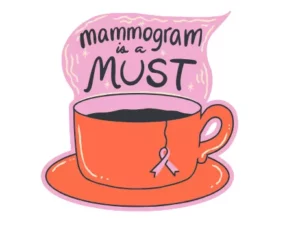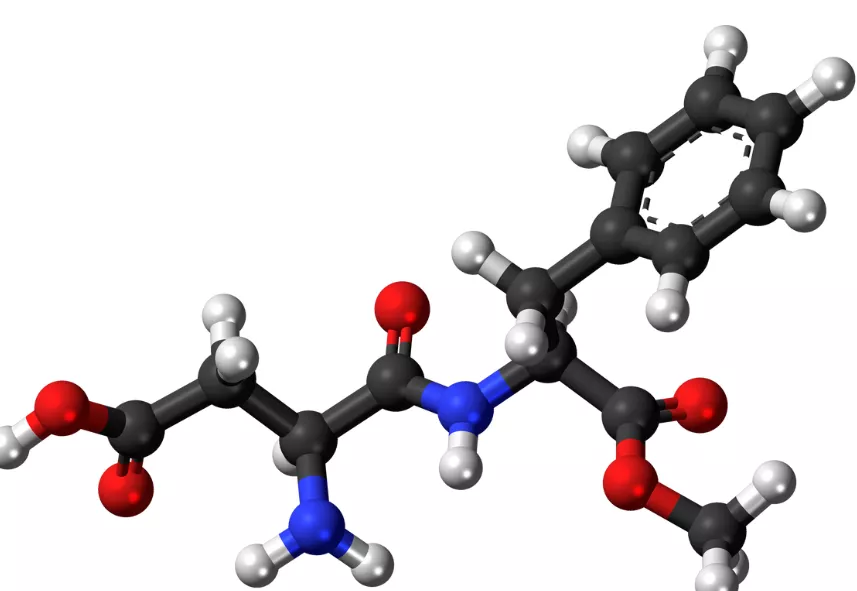Cancer Screening Does Not Always Extend Life
October 4, 2023
 Screening for the earliest signs of cancer seems to make sense: identifying a nascent tumor, for example, before it has time to cause organ damage or spread and treating it should save some lives. That is the rationale that leads millions of people to undergo screening for breast, prostate, colon, lung, and other forms of cancer on a regular basis.
Screening for the earliest signs of cancer seems to make sense: identifying a nascent tumor, for example, before it has time to cause organ damage or spread and treating it should save some lives. That is the rationale that leads millions of people to undergo screening for breast, prostate, colon, lung, and other forms of cancer on a regular basis.
Now, however, a much reported-on study finds that in many instances, screening for cancer does not in fact extend life. This and other studies have opened a debate about when cancer screening is really an effective tool, whether in some cases screening for cancer has more risks than benefits, and whether some cancers are better off just being watched.
The newest analysis was published in the journal JAMA Internal Medicine at the end of August. A group of investigators from Europe and the U.S. gathered randomized clinical studies and meta-analyses of randomized clinical studies that evaluated the effects of six types of cancer screening tests on all-cause mortality. The six types of cancer screening tests were:
- Mammography for breast cancer
- Colonoscopy for colon cancer
- Sigmoidoscopy for colon cancer
- Computed tomography (CT scanning) for lung cancer in smokers and former smokers
- Prostate specific antigen (PSA) testing for prostate cancer
- Pap testing for cervical cancer
They found that “the only screening test that significantly increased longevity was sigmoidoscopy, by 110 days.”
This result comes as nothing short of shocking. It is standard practice to recommend all of these screening tests to detect incipient cancers that might be stopped before they become life-limiting. How could it be that most of them don’t actually increase longevity and in the case of sigmoidoscopy to detect colon cancer only extend life by about three months?
Study Limitations and Screening Test Risks
The first possibility for the negative findings is that there are limitations and flaws in the analysis itself. This appears to be a carefully done analysis that relied only on randomized clinical trials, eliminating the biases that are inherent in observational studies. Yet the authors acknowledge the possibility that the rigor of randomized controlled trials could result in an underestimation of the true value of the screening tests. There is also the curious finding that sigmoidoscopy but not colonoscopy yielded a small positive longevity finding. These procedures look at the same thing, the risk of colon cancer, with sigmoidoscopy providing a more limited view compared to colonoscopy. The reason for this discrepancy seems to be that there have been fewer trials reported with colonoscopy than sigmoidoscopy, thus limiting the ability to find a significant benefit for the former because of statistical issues. Thus, some of the lack of benefit for cancer screening might come from problems with the studies included in this analysis.
The second possibility is that the tests have harms that themselves limit lifespan in some cases. Some of the tests do in fact have uncommon adverse outcomes, like bowel perforation during sigmoidoscopy and colonoscopy. A positive finding on a PSA test could lead to a prostate cancer diagnosis and surgical intervention, which then has all the inherent risks of surgical procedures. If the screening tests are associated with factors that themselves reduce lifespan, then any benefits of screening would be obscured.
Psychological Harms of Cancer Screening
The authors also note a third possibility—psychological harms of cancer diagnoses that can lead to suicide or fatal cardiovascular events or accidents. They cite two studies in support of this contention. The first of these involved a large cohort of Swedish patients diagnosed with cancer and found that diagnoses of mental disorders, especially depression, increased beginning one month before cancer diagnosis, perhaps in anticipation of screening, and peaked during the first week after diagnosis. The rates of mental disorders decreased rapidly after this point but remained elevated through 10 months of observation and were especially elevated in people with cancer of poor prognosis.
The second cited study, also involving Swedish patients, showed a significant increase in suicides and cardiovascular deaths following a cancer diagnosis, again especially prominent among people with poor-prognosis cancers. Here again, if screening leads to an increase in cancer diagnoses and this in turn leads to deaths from psychological harms, then any benefits of screening on increasing lifespan would be hidden.
It will be interesting to see whether the new cancer screening outcomes analysis impacts rates of cancer screening in the U.S. or elsewhere. There is certain to be widespread discussion among experts about the significance of the findings and there may be pushback from some organizations with vested interests in performing the screening tests. It is very difficult based on this one analysis to know if there really is no overall benefit to cancer screening and it will be hard to use it to guide individual patients about the best choices for them.
The Mammography Debate
That the new analysis failed to find a longevity benefit for mammography in detecting early breast cancer will only add to the current debates about this specific screening test. Asia Friedman is an associate professor of sociology and author of the book Mammography Wars: Analyzing Attention in Cultural and Medical Diagnoses. Professor Friedman recently wrote in an article in STAT that mammography “remains one of the most deeply contested topics in medicine…experts remain divided over how best to define and measure the benefits and harms of mammography, and even over the validity of the very idea of early detection.”
As Friedman notes, the United States Preventive Services Task Force (USPSTF) just lowered its recommended age for beginning regular mammography from 50 to 40, aligning it with other organizations like the American College of Radiology. But USPSTF guidelines call for mammograms every other year, while some other guidelines recommend annual mammography. The new analysis may prompt some experts to recommend even less frequent mammograms than USPSTF. The issue is again not whether screening will detect cancers—it definitely does—but whether this translates into overall enhanced outcomes. And what are the harms of more frequent screening?
One harm is false positives—detecting a cancer that doesn’t actually exist. All screening tests are subject to false positives and the more often an individual has the test the greater the chance that this will happen. Friedman notes a study that found that 35% of participants had had at least one false positive mammogram. The result of false positives may be the need for further testing, including invasive procedures like breast biopsies. Once again, being given a cancer diagnosis can lead to serious anxiety and, as the studies noted above show, significant depression and even suicidal acts. Unfortunately, we know of no studies that evaluate the rate and severity of emotional upheaval following a false positive breast cancer diagnosis and therefore it is difficult to know whether this factor should be considered when deciding how often to recommend mammography. But false positives are a definite reason to think twice before recommending that everyone has a mammogram annually beginning at age 40.
The Risk of Overdiagnosis
Another risk of cancer screening is that it may lead to unnecessary treatment. Cancer is really a term for a broad range of diseases with highly variable severity. Although we officially call some skin lesions cancer, like basal cell carcinoma, they rarely rise to the level of being life-threatening. On the other end of the spectrum are cancers that are almost universally lethal and for which there are often no available screening tests for early detection, like pancreatic cancer and the brain tumor glioblastoma. Some cancers are so slow growing they may never cause problems, but once detected may prompt a “get it out fast” attitude, leading to surgical interventions or chemotherapy, each of which carry their own risks. Writing in a New York Times op ed last month, Drs. Laura Esserman, a surgeon and breast cancer oncologist, and Scott Eggener, a surgeon and urologic oncologist, noted “as newer and more sensitive technologies come into use, we are increasingly identifying medical conditions that might have gone undetected without any issues. This phenomenon of overdiagnosis is a well-documented consequence of screenings for breast and prostate cancer.”
Esserman and Eggener go on to describe various scenarios with certain types of breast and prostate cancers that do not require immediate intervention and can be watched instead because they progress so slowly if at all that they may never create any significant harm. Screening will again increase the number of these slow-developing cancers that are detected, leading to anxiety, depression, and unneeded interventions. In cases like these, screening won’t increase an individual’s lifespan but some of the complications of screening could conceivably shorten it.
All of this puts tremendous pressure on patients and their healthcare providers to make decisions about cancer screening in the face of considerable uncertainty and differences of opinion. The benefit of cancer screening is that in some cases early and potentially life-threatening disease will be detected and dealt with, thus prolonging lifespan. The risks are false positives and overdiagnosis, both leading to further tests, treatments, and procedures that can create situations in which for some people length of life is actually shortened. When and how often to have a mammogram, for example, continues to be hotly debated and may wind up being a very personal decision between an individual and their physician. We can only hope that further studies will give us more clarity about the degree of benefit cancer screening really entails.
Related Posts

We Need to Maintain Funding for Biomedical Research: Witness CRISPR, CAR-T, and the Dark Genome
Posted in Cancer
We need to maintain federal funding for scientific research. CRISPR, CAR-T, and the Dark Genome are examples of why.

Two Events Affecting Women's Health Challenge Scientific Certainty
Posted in Cancer
Two recent reports related to women's health, one about breast cancer screening guidelines and the other about hormone replacement therapy, showcase how uncertain medicine can be.

The Aspartame Saga
Posted in Cancer
Does aspartame cause cancer? An inside look at the recent debate after a WHO committee classified aspartame as a potential carcinogen.